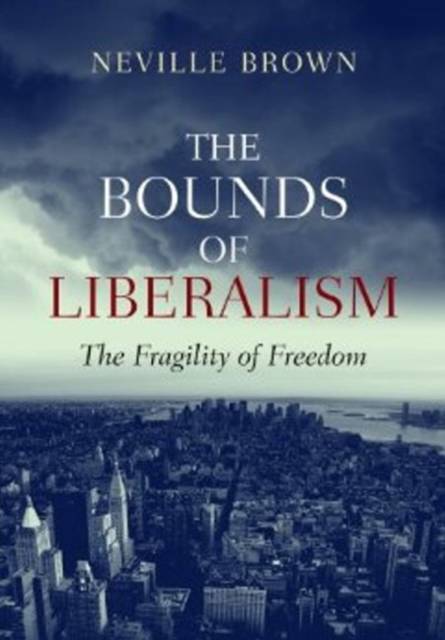
- Retrait gratuit dans votre magasin Club
- 7.000.000 titres dans notre catalogue
- Payer en toute sécurité
- Toujours un magasin près de chez vous
- Retrait gratuit dans votre magasin Club
- 7.000.0000 titres dans notre catalogue
- Payer en toute sécurité
- Toujours un magasin près de chez vous
41,95 €
+ 83 points
Format
Description
The core issue of this work is how far the West may need to modify or extend the liberal philosophy informing its responses to the multiple world crisis it is now attempting to deal with. Coming after the author's "Engaging the Cosmos: Astronomy, Philosophy & Faith" and "The Geography of Human Conflict", this text will complete a trilogy addressing very comprehensively the challenges of our times. It provides a review of the strengths and weaknesses of Social Liberalism that, broadly speaking, occupies the ground between moderate Right and moderate Left. The work is informed by the conviction that the world, half a century hence, will be either considerably better than now (freer, more peaceable, more enriching...) or else a good deal worse. Those concerned to effect the former outcome should promote the spread among emergent states of well-founded democracy. But they must also look stringently at how well democratic institutions may function in the mass societies of the West. History indicates that pell-mell cultural change, constant ecological impoverishment, and endless leap forwards in applied science may not augur well for stability and peace. The author's accepted expertise in History, International Security, Planetary Development and Applied Geophysics means he can address a variety of issues such as: climate change and resource depletion; community decay, data saturation, the future of universities, democratic devolution, leaders and led, and medical philosophy; and biowarfare, the management of Near Space, international currency, and a planetary ethos. It is contended that we are not approaching the "end of History" in any meaningful sense. Instead we are passing through, at accelerated pace, an evolutionary transition as impacting as that between the Old and New Stone Ages. Our perspectives on the immediate future may be honed by free-ranging speculation about what mankind can anticipate over the next few centuries.
Spécifications
Parties prenantes
- Auteur(s) :
- Editeur:
Contenu
- Nombre de pages :
- 360
- Langue:
- Anglais
Caractéristiques
- EAN:
- 9781845193539
- Date de parution :
- 01-12-13
- Format:
- Livre broché
- Format numérique:
- Trade paperback (VS)
- Dimensions :
- 173 mm x 244 mm
- Poids :
- 635 g

Les avis
Nous publions uniquement les avis qui respectent les conditions requises. Consultez nos conditions pour les avis.






